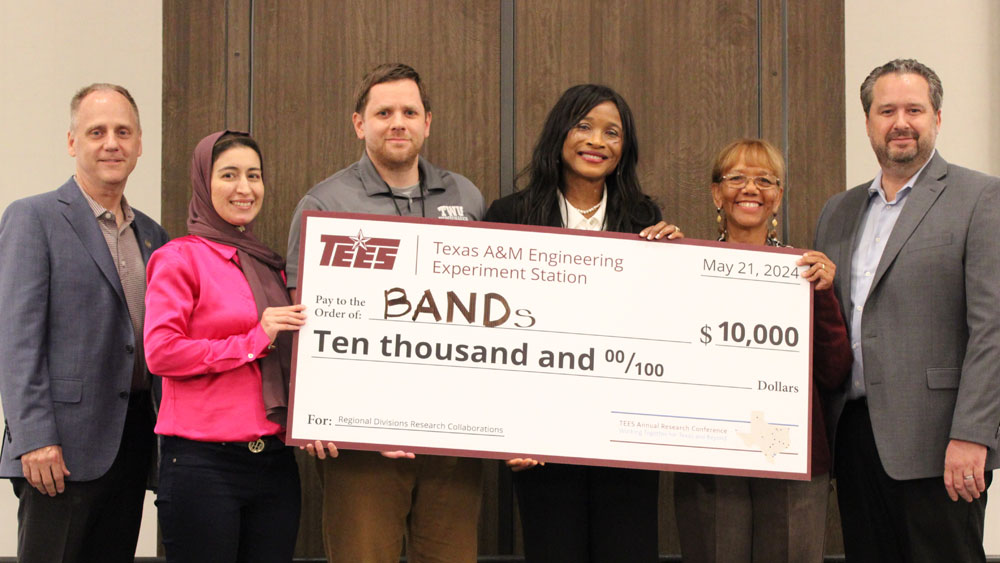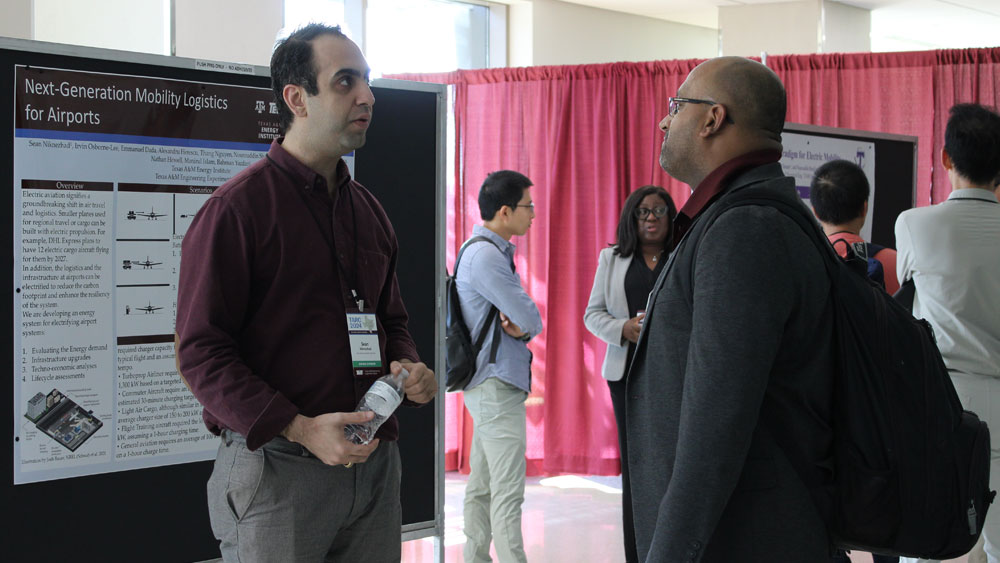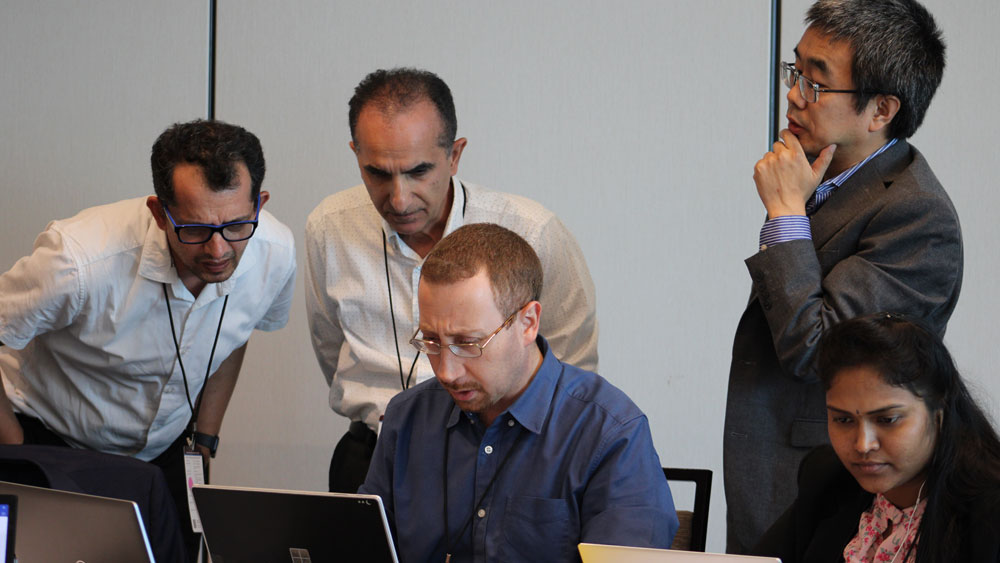
The Texas A&M Engineering Experiment Station (TEES) awarded $40,000 in seed grant funding to new research collaborations at the 2024 TEES Annual Research Conference (TARC) held May 20-21. The top prize of $10,000 went to the BANDs team for their project “Advancing Neurodegenerative Disease (ND) Management: Sensor-Based Risk Profiling and Disease Progression Monitoring.” The Principal Investigator is Ngozi Mbue, Ph.D., APRN, ANP-C from Texas Woman’s University-Houston.
Their project proposes in-sole wearable sensors that track risk factors (e.g., physical activity, sleep, cytokine levels) and disease progression (e.g., dyskinesia, tremors, rigidity, gait abnormalities) for conditions like Parkinson's and Alzheimer's. These lightweight, cost-effective sensors uniquely measure pro-inflammatory biomarkers in sweat and muscle rigidity with strain gauges. Data syncs wirelessly to a custom dashboard app for physician review.
“We are confident that our invention will help clinicians diagnose and inform treatment options and provide 24/7 objective data that can be synced, allowing for a personalized telehealth approach and reduced healthcare costs,” Mbue said. “In addition, we hope that access to data can allow it to be used in traditional and virtual clinical trials and have a worldwide impact, as neurodegenerative diseases affect many across the globe.”
Additional team members include Rhett Rigby, Ph.D. from Texas Woman’s University-Denton, Karen N. Williams MHIM, RHIA, CPHQ, CHTS-TR from Del Mar College, and Fatemeh (Azi) Tabei, Ph.D. from West Texas A&M University.

Each year, TARC brings together representatives from the TEES regional divisions and affiliates to develop research projects in hopes of expanding the research capacity in the state of Texas. Participants have the opportunity to network with funding agencies, advance their research portfolios and work with colleagues to create action plans to pursue extramural funding within the TEES thematic workgroups: Energy & Power, Healthcare, Information Systems/Data Science, Infrastructure, Materials & Manufacturing and National Security/Cybersecurity. Dr. Cindy Lawley, the Texas A&M University College of Engineering assistant vice chancellor for Academic and Outreach Programs, the assistant dean for Engineering Academies and the TEES associate agency director for Workforce Development and Regional Divisions, was chair of this year’s conference, held at the Zachry Engineering Education Complex and the Texas A&M Hotel and Conference Center.
"The conference offers a distinctive opportunity for faculty and researchers to form valuable connections, explore potential collaborations and gain insights from field experts, leading to new research opportunities and partnerships,” Lawley said. “This fosters innovation and allows stakeholders to harness the diverse talent within the TEES network."

This was the first year that participants were able to gather in their thematic work groups across two days. This allowed participants to focus on forming collaborative teams that meet the criteria to receive incentive funds. In addition, past TARC seed funding winners presented their findings during a poster session held at the Zachry Engineering Education Complex on May 20. In addition to the workgroup sessions, attendees had the opportunity to tour Texas A&M Engineering lab facilities and learn more about funding from research leadership and research development professionals.
Along with the $10,000 award, TEES also presented one $7,500 award, three $5,000 awards and three $2,500 awards for a total of $40,000 in seed grant funding. Visit the TARC Website to view the full list of this year’s winners.